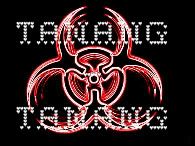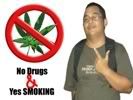HEALTH FACTS-MENOPAUSE
Thursday, March 20, 2008
 Overview & Facts
Overview & FactsMenopause is a natural and important part of every woman's life. Most women experience this stage after age 40 and spend a third of their life in this phase.
What Is Menopause?
What Is Perimenopause?
This transition starts years before your period stops. Symptoms during this time include mood swings, hot flushes, and loss of sex drive. Learn when it begins, how long it lasts, and more.
What Is Menopause?
Menopause is a normal part of aging; about 70% of woman experience symptoms. Lifestyle changes, diet, exercise, and medications can help. Awareness of health during this stage is essential. See why.
Understanding Menopause: The Basics
Menopause simply means the end of menstruation. Learn the basics about menopause in this brief article.
Related Web Site: Advanced Reading: Autoimmune POF
Autoimmune diseases are seen more frequently in women than in men. Autoimmune premature ovarian failure (POF) is also frequently seen with other autoimmune disorders. Screening and treatment for women at risk may be possible. Read more. This link will take you to another site.
Causes
Menopause Causes
What happens during menopause? What makes this transition occur? Read more about this important life stage.
Surgical and Medical Treatments That Cause Menopause
Not all women undergo natural menopause. Here are some of the other things that can cause menopause.
Causes of Premature Menopause
Autoimmune diseases, surgery, and genetics can cause early menopause. This raises your chances of getting osteoporosis and breaking a bone. Read more. This link takes you to another site.
Related Web Site: Ovarian Preservation
Egg freezing is an option for women undergoing chemotherapy, taking medications, or having surgery that can damage the ovaries. Read more about preventing loss of ovarian function. This link will take you to another site.
What Is Perimenopause?
This transition starts years before your period stops. Symptoms during this time include mood swings, hot flushes, and loss of sex drive. Learn when it begins, how long it lasts, and more.
What Is Menopause?
Menopause is a normal part of aging; about 70% of woman experience symptoms. Lifestyle changes, diet, exercise, and medications can help. Awareness of health during this stage is essential. See why.
Understanding Menopause: The Basics
Menopause simply means the end of menstruation. Learn the basics about menopause in this brief article.
Related Web Site: Advanced Reading: Autoimmune POF
Autoimmune diseases are seen more frequently in women than in men. Autoimmune premature ovarian failure (POF) is also frequently seen with other autoimmune disorders. Screening and treatment for women at risk may be possible. Read more. This link will take you to another site.
Causes
Menopause Causes
What happens during menopause? What makes this transition occur? Read more about this important life stage.
Surgical and Medical Treatments That Cause Menopause
Not all women undergo natural menopause. Here are some of the other things that can cause menopause.
Causes of Premature Menopause
Autoimmune diseases, surgery, and genetics can cause early menopause. This raises your chances of getting osteoporosis and breaking a bone. Read more. This link takes you to another site.
Related Web Site: Ovarian Preservation
Egg freezing is an option for women undergoing chemotherapy, taking medications, or having surgery that can damage the ovaries. Read more about preventing loss of ovarian function. This link will take you to another site.
 Symptoms
SymptomsMenopause Symptoms
Most women have menopause symptoms such as hot flashes, sleep issues, and changes in sexual interest or response. Learn more about signs that signal menopause and when your symptoms may mean you want to call a doctor.
Heating Up With Hot Flashes
The most frequent symptom of perimenopause and menopause, hot flashes happen to more then two out of three North American women. How can you turn down the heat? Does soy, or herbs like black cohosh, help? Find out.
Is This Menopause?
How do you know if you've entered menopause? Here are the signs and symptoms to watch for.
Sex Drive and Menopause
If your sex drive is sputtering, learn how you can rev it back up.
Sex and Aging: What's Normal, Anyway?
Is it normal for your sex life to change with age? What's normal, anyway? Find out.
Hot Flashes, Menopause and Anxiety
Controlling lifestyle stress and anxiety may help reduce the number and severity of hot flashes associated with menopause, research shows. Learn more about these study results here.
Warning Signs
Menopause: Warning Signs
Menopause warning signs.
Types
Premature Menopause: What It Is, What to Watch For
Menopause starting before the age of 40, whether natural or induced, is known as "premature" menopause. What symptoms should you watch for, and how is premature menopause diagnosed and treated? Find out.
Surgical Menopause & Induced Menopause
Surgical treatments, including chemotherapy and radiation therapy, and the removal of ovaries, can cause women to go into induced menopause. Learn more about surgical and induced menopause here.
Postmenopause
The years after menopause are called postmenopause. Many menopause symptoms are easing now. Learn what changes you can expect in postmenopause -- and how to know you're in it.
Related Guide: Male Menopause: What Is It?
Men experience a decline in the production of the male hormone testosterone with aging and some report menopause-like physical symptoms. Is this male menopause? Find out.
Related Web Site: Aging Male Syndrome
A decline in the male sex hormones can affect a man's body -- and many symptoms can occur. Testosterone maintains sex drive, sperm production, pubic and body hair, muscle, and bone. Read more about what can happen during male menopause. This link will take you to another site.
A decline in the male sex hormones can affect a man's body -- and many symptoms can occur. Testosterone maintains sex drive, sperm production, pubic and body hair, muscle, and bone. Read more about what can happen during male menopause. This link will take you to another site.
Complications
Sleep Disorders and Menopause
Many women going through menopause experience insomnia. What are its symptoms? Can alcohol or warm milk help? Find out how to treat your insomnia and get a good night's sleep.
Menopause and Weight Gain: Is There a Connection?
If you're approaching menopause and think you may be gaining weight, there could be a connection. One expert offers her opinion.
Related Guide: Incontinence and Menopause
Bladder control issues are common in women going through menopause, but there are many options available to treat incontinence. Find out what your options are.
Sex After Menopause
The loss of estrogen following menopause can lead to changes in a woman's sexual functioning. How can you cope with the physical changes? What can you do to give your sex drive a boost as you go through menopause? Get tips here.
Are You on a Rollercoaster?
Menopause can mean emotional changes, making you more inclined to irritability, sadness, anxiety, fatigue, and more. Lifestyle changes can help you cope. Learn how here.
Menopause and Depression
Women approaching menopause woman can experience depressive symptoms. Experts say you shouldn't just live through it, but seek help. Find out more.
Related Guide: Osteoporosis Quiz: Determine Your Risk
Reduction in estrogen after menopause may increase your risk for osteoporosis, a disease that weakens bones. Are you at risk? Take this simple quiz to find out.
Postmenopause Osteoporosis
Related Guide: Osteoporosis Facts: Get the Basics
An estimated 10 million people in the U.S. have osteoporosis, including 8 million women. Get a brief introduction to the basics about osteoporosis here.
Menopause and Heart Disease
Heart disease is the No. 1 killer of women and as women get older, their risks increase dramatically. Find out what you can do right now to lower your heart disease risks and whether hormone therapy may be the right path.
Related Web Site: Heart Disease and Stroke Risk Factor Tool
Heart Disease and Stroke Risk Factor Tool
Heart Disease Quiz: What's Your Risk?
Heart disease is the No. 1 killer of women. As women age their risks for heart disease increase dramatically. Are you at risk? Take this quick quiz to find out.
Menopause and Breast Cancer
Menopause itself is not associated with an increased risk of developing breast cancer; age is the single-most important breast cancer risk factor. Learn how breast cancer is diagnosed and what steps you can take to prevent breast cancer.
Related Guide: Breast Cancer Facts
Get the facts you want. This overview tells you what you need to know about breast cancer and its causes.
Ovarian Cancer and Menopause
Menopause doesn't raise your risk of developing ovarian cancer; the risks increase with age. Ovarian cancer is the fourth leading cause of cancer death among women. Find out what causes this cancer, its symptoms, and what you can do to protect yourself.
To know about its treatments and cares...CLICK HERE!

















































































































0 apa kata mereka: to “HEALTH FACTS-MENOPAUSE
”
Post a Comment